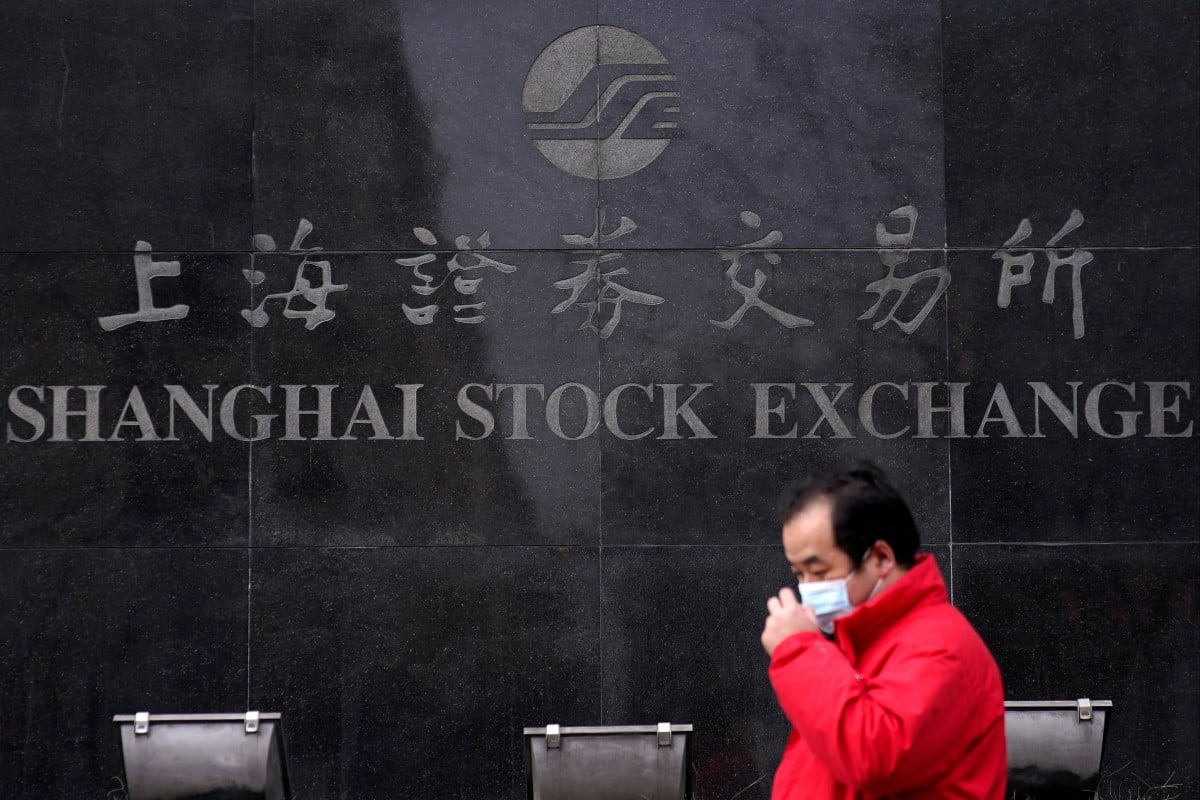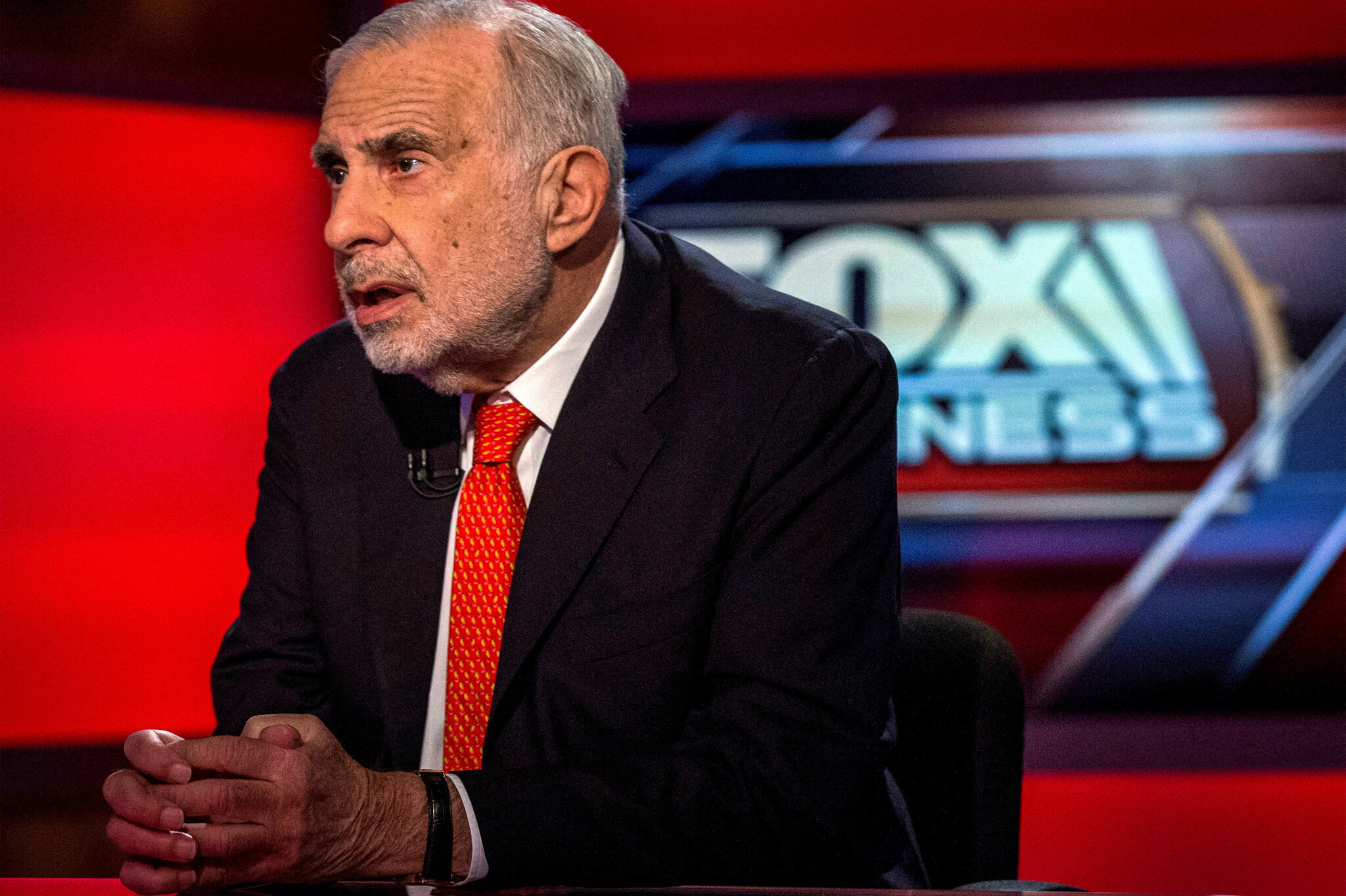One thing to start: Ken Jacobs, the longtime chief executive of Lazard, is expected to leave his post at the independent investment bank and hand the reins to his deputy Peter Orszag, said people briefed on the matter.
Welcome to Due Diligence, your briefing on dealmaking, private equity and corporate finance. This article is an on-site version of the newsletter. Sign up here to get the newsletter sent to your inbox every Tuesday to Friday. Get in touch with us anytime: [email protected]
In today’s newsletter
Icahn says he made a mistake
An early victory for AT1 bondholders
Geely takes Aston Martin for a spin
The age of cheap money was supposed to be a time of easy profits for investors, but for one of Wall Street’s titans it spurred an epic string of losses.
Carl Icahn, the billionaire known for his activist battles with corporate giants like Texaco, Dell and Apple, has lost money every year since 2014, mostly by building costly hedges against a fast-rising market to protect his investment empire from a 2008-like collapse.
Since the beginning of 2017, Icahn has lost nearly $9bn due to large hedges he built as he grew increasingly sceptical of valuations and the health of the global economy, a decision Icahn told DD’s Antoine Gara and Ortenca Aliaj was a mistake.
“I’ve always told people there is nobody who can really pick the market on a short-term or an intermediate-term basis,” Icahn said in an interview to discuss the Financial Times’ analysis of his losses. “Maybe I made the mistake of not adhering to my own advice in recent years.”
According to an FT analysis, the prominent activist investor lost about $1.8bn in 2017 on hedging positions that would’ve paid out if asset prices had tumbled before losing a further $7bn between 2018 and the first quarter of this year.
Icahn started aggressively betting on a market collapse in the aftermath of the 2008 financial crisis and became increasingly bolder in subsequent years, deploying a complex strategy that involved shorting broad market indices, individual companies, commercial mortgages and debt securities.
At times, Icahn’s notional exposure, the underlying value of the securities he was betting against, exceeded $15bn, regulatory filings show. “You never get the perfect hedge, but if I kept the parameters I always believed in . . . I would have been fine,” he said. “But I didn’t.”
The bearish trades neutralised about $6bn in gains from his activist wagers, leaving him with an overall investment loss of nearly $3bn since 2017 and the publicly listed vehicle he controls, Icahn Enterprises, in a vulnerable position.
Earlier this month, short seller Hindenburg Research released a report criticising the finances of the vehicle, which is owned mostly by Icahn. It drew attention to large-margin loans Icahn had taken against his shares.
Icahn told the FT that he had used the loans to make additional investments and had billions of dollars of cash outside of his public vehicle.
“Over the years I have made a great deal of money with money. I like to have a war chest and doing that gave me more of a war chest,” he added, referring to the margin loan.
As pressure on his firm mounts, Icahn has been forced to rein in his short bets just as some investors fear that a regional banking crisis and the debt ceiling stand-off could result in a sharp market sell-off.
It is bad enough discovering that the regulator has entirely wiped out your investment. But it is truly awful when it then tries to keep its rationale for doing so a secret.
This was the situation facing Credit Suisse’s additional tier 1 bondholders, who lost $17bn when Swiss financial regulator Finma ordered the bank to write down the bonds as a condition of its shotgun wedding to UBS.
While Finma initially refused to disclose its decree ordering the writedown to AT1 investors (we guess bank secrecy is still a bit of a thing in Switzerland), a group that is suing the regulator has now managed to force it to hand over the document.
Inside are both highly technical (but important) justifications for the writedown alongside juicy details relating to the dire shape Credit Suisse found itself in the days before the UBS merger.
Obtaining the document presents an early victory for the holders of at least $4.5bn of wiped-out Credit Suisse additional tier 1 bonds who are suing Finma. But the wider legal battle is still expected to be protracted and final victory is very much not assured.
Still, when you’re fighting to overturn a decree, it helps to know what it actually says. No one likes battling in the dark.
After years of pursuit, Geely has finally caught Aston Martin.
Over years of patient stakebuilding, the Chinese car group has built a sprawling empire that covers investments in Mercedes-Benz, Lotus and Polestar. But the greatest prize has always been the British luxury brand.
During an appearance at the FT’s Future of the Car summit last week, Geely’s chief executive Daniel Li said he “loved” the Aston Martin brand. When asked if it would raise its stake, he coyly replied: “We don’t have anything ready for an announcement.”
Seven days later, the announcement was ready. Thursday’s deal sees it more-than double its stake to 17 per cent through new shares and some of chair Lawrence Stroll’s holding, with an agreement not to go above 22 per cent before August 2024.
Geely isn’t in control, yet. It is still in third place in the investor deck to Stroll’s private band of investors, and to Saudi Arabia’s Public Investment Fund, which is itself an investor in McLaren and electric vehicle start-up Lucid.
But the company has a board seat and a “long-term partnership” to explore selling Aston Martin technologies and components from across its group.
Geely bid for the company several times, most notably in late 2019, when the group presented a rival offer to Stroll’s.
The big question for Aston Martin is whether Geely’s larger presence presents a future off-ramp for Stroll, whose investments have cratered as he tries to repair the brand’s “ultra-luxury” credentials. Stroll has consistently said he’ll stay invested in Aston Martin for the long run.
But, as long as he can keep his son Lance racing in Formula 1 with Aston Martin as part of an agreement to sell the company, speculation will mount that he wouldn’t refuse a dignified transition.
The Chinese group’s long-term plans shouldn’t be underestimated.
The best way to understand Geely is through the words of former Volvo Cars boss Hakan Samuelsson, who was asked whether the company wanted to become China’s answer to Volkswagen.
“Oh no,” he replied. “They’re far more ambitious than that.”
Mediobanca has acquired Arma Partners with Paul-Noël Guély continuing to lead the London-based advisory firm’s team of 100 bankers. Read more here.
General Electric has named Rahul Ghai as its chief financial officer, succeeding Carolina Dybeck Happe. Ghai will also maintain his current role as CFO of GE Aerospace.
Jefferies has hired Dennis Kwan as a managing director in its private capital advisory team based in Hong Kong.
Doom loop A crisis of homelessness, drug abuse and crime is threatening San Francisco’s future, the FT reports.
Reality check Wall Street banks, including Goldman Sachs and Morgan Stanley, are scaling back ambitious expansion plans in China, Bloomberg reports.
Super agent At 90, Creative Artist Agency’s Fred Specktor still spends his days orchestrating the careers of A-list actors and looking for new talent, The Wall Street Journal reports.
Calpers signals ‘appetite’ to increase bets on private equity (FT)
Sony considers partial spin-off and listing of financial services unit (FT)
Alameda seeks millions of dollars from firms including George Osborne’s 9Yards (FT)
Deutsche Bank pays up to $75mn to settle lawsuit from Jeffrey Epstein accusers (FT)
Blackstone struggles to sell private credit to Europe’s rich (Bloomberg)
Due Diligence is written by Arash Massoudi, Ivan Levingston, William Louch and Robert Smith in London, James Fontanella-Khan, Francesca Friday, Ortenca Aliaj, Sujeet Indap, Eric Platt, Mark Vandevelde and Antoine Gara in New York, Kaye Wiggins in Hong Kong, George Hammond and Tabby Kinder in San Francisco, and Javier Espinoza in Brussels. Please send feedback to [email protected]
Unhedged — Robert Armstrong dissects the most important market trends and discusses how Wall Street’s best minds respond to them. Sign up here
Full Disclosure — Keeping you up to date with the biggest international legal news, from the courts to law enforcement and the business of law. Sign up here
Icahn regrets losing $9bn on short bets

